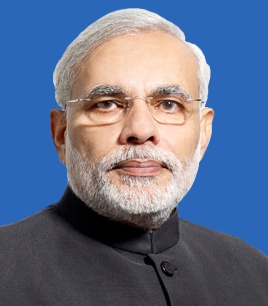Early budget would help govt use productive resources better: PM
28 Dec 2016
 Advancing budget presentation to 1 February will help authorisation of expenditures before the onset of monsoon and starting of government programmes in the productive months ahead of monsoon, Prime Minister Narendra Modi said.
Advancing budget presentation to 1 February will help authorisation of expenditures before the onset of monsoon and starting of government programmes in the productive months ahead of monsoon, Prime Minister Narendra Modi said.
Speaking about the budget cycle at a meeting of the NITI Aayog, the prime minister said that in the existing budget calendar the authorisation of expenditure comes with the onset of the monsoon. This, he said, results in government programmes being relatively inactive in the productive pre-monsoon months. Keeping this in view, the date of budget presentation is being advanced, so that expenditure is authorised by the time the new financial year begins, he said.
At a meeting to discuss `Economic Policy – The Road Ahead', Modi said a change in the budget cycle would have an impact on the real economy. ''The date of budget presentation is being advanced so that expenditure is authorised by the time the new financial year begins,'' he said.
In his intervention, the prime minister also called for innovative approaches in areas such as skill development and tourism.
During the session, participants shared their views on various economic themes such as agriculture, skill development and job creation, taxation and tariff related matters, education, digital technology, housing, tourism, banking, governance reform, data driven policy, and future steps for growth.
Briefing reporters on the proceedings of the session, Arvind Panagariya, deputy chairman of NITI Aayog said the prime minister emphasised that India ought to have centres of excellence based on the climate of a particular region.
Modi said he would like the plan to have 10 public and 10 private world class universities, announced in the 2016 Union budget, adding that India needed to have world class agricultural universities as well.
''The prime minister also picked up on the issue of direct and indirect tax administrations in the finance ministry and emphasised on the need to improve coordination,'' Panagariya said.
On the issue of tax evasion, Modi said taxpayers do want to pay taxes but want the proceeds to be used for useful purposes that serve public interest such as building hospitals. ''When revenues are not properly spent, he wants to evade the taxes,'' Modi said.
Panagariya also pointed out that the only mention of demonetisation came only in the context of formalisation of the economy. ''Some speakers said that since more transactions are now happening through formal, digital platforms, we need to bring more jobs to the formal economy and complementary policies were proposed.''
The NITI Aayog had invited 13 experts and key secretaries for the discussion. On the suggestion of prime minister, the participants were divided into three groups: agriculture; jobs, skills and education; and budget-related issues.
On budget-related issues, experts suggested several priority areas for expenditure such as digital connectivity and rural housing.
''Simplification of direct taxes such as reducing exemptions, bringing down tax rates and increasing the use of direct benefit transfers to reduce subsidy expenditure figured at the meet,'' said Panagariya.
Some experts also emphasised better systems for data analytics to facilitate data-driven tax administration.
On agriculture, experts suggested measures to meet the stated goal of doubling farmers' income by 2022. These, they pointed out, need agricultural market reforms, including APMC (agricultural produce market committee) reforms, allowing farmers to sell to wholesale private markets, micro-irrigation and digital payments to farmers.
On jobs, skills and education, experts emphasised bringing firms into formal, organised sectors since that would lead to growth of well-paying, productive jobs.
The meeting was attended by the finance minister Arun Jaitley, minister of state for planning Rao Inderjit Singh, vice chairman of NITI Aayog Arvind Panagariya, and senior officers from the union government and NITI Aayog.
Eeconomists and experts, including Prof Pravin Krishna, Prof Sukhpal Singh, Prof Vijay Paul Sharma, Neelkanth Mishra, Surjit Bhalla, Dr. Pulak Ghosh, Dr. Govinda Rao, Madhav Chavan, N. Singh, Vivek Dehejia, Pramath Sinha, Sumit Bose, and T.N. Ninan also attended the meeting.


















